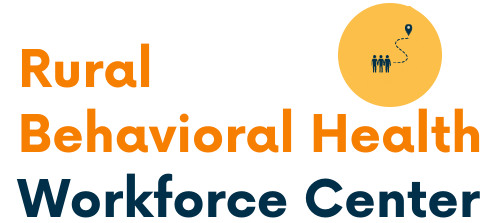
Maine Rural Behavioral Health Workforce Center
Home Maine
Specialty Tracks
Recovery Coach
Provides support services to people in recovery. Help people meet their wellness needs during their recovery journeys.
Certified Intentional Peer Support Specialists
Intentional Peer Support transforms relationships. It introduces new world views and awareness. Use your personal experiences to empower others.
Alcohol and Drug Counselor
Individuals who provide individual or group alcohol and drug counseling services
Mental Health Rehabilitation Technician
Individuals who provide community supports to adults with mental illness
Mental Health Support Specialist
Assist people who are living with mental illness to achieve independence. Support them in day-to-day activities. This may be in their own home, supported living, or in their community.
Other certifications
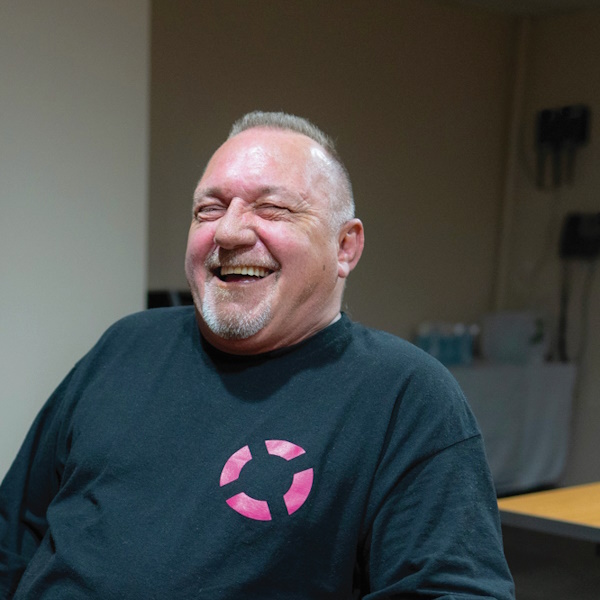
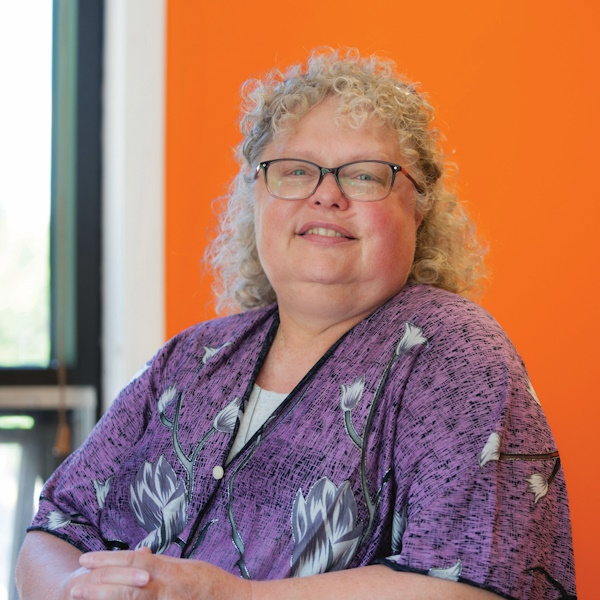
Your Story.
Your Work.
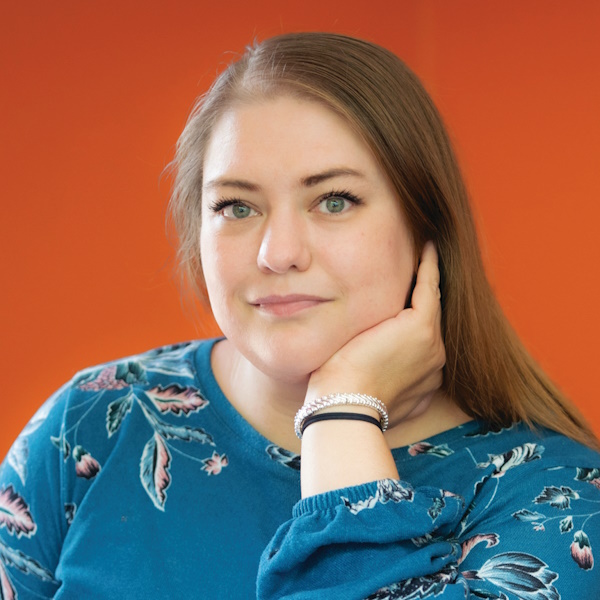
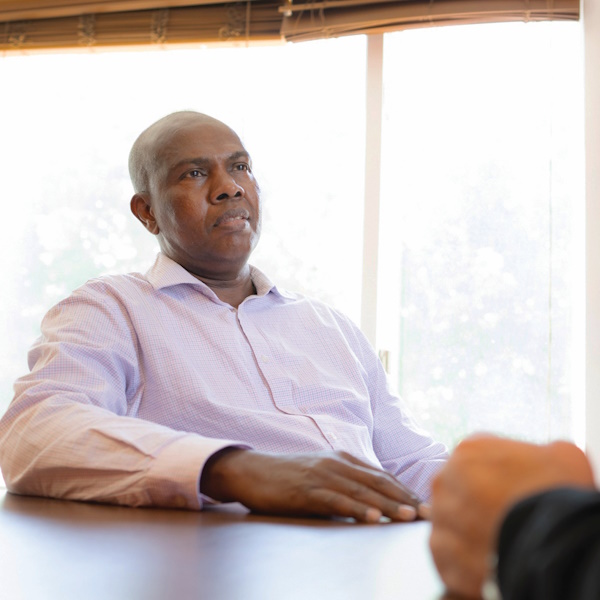
Every journey in recovery is different. Every journey shows that change is possible, connection is essential, and stories have power.
A career as recovery coach or peer professional in Maine is rewarding work that supports a lifetime of recovery.
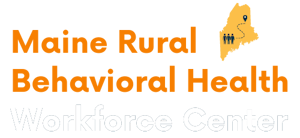
Other certifications you may be interested in
| Behavioral Health | ||
|---|---|---|
| Title | Summary | Requirements |
| Behavioral Health Professional | The Behavioral Health Professional is a direct care provider who work with kids, teens, and their families either in home or community settings. You'll use your creativity, flexible-thinking, compassion, and understanding to support children and youth with developmental disabilities/delays, intellectual disabilities, Autism, and mental health disorders. You'll have specific goals to help them increase their skills in behavior management, communication, independent living, self-care, self-help, and socialization. | You must be at least 18 years old and have a high school diploma or equivalent. |
| Direct Support Professional | The Direct Support Specialist supports people with disabilities to participate in their communities, including through employment. For example, they may serve as job development staff to assist in finding and/or customizing jobs or as job coaches who provide direct employee assistance on the job. They also provide other services, such as help with activities of daily living. | Be at least 18 years old, Have a high school diploma or equivalent competency, Complete the DHHS-approved Direct Support, Training in the Maine College of Direct Support is obtained through Developmental Disability Services provider agencies. |
| SSI/SSDI Outreach, Access, and Recovery Specialist - Adult Support | The SOAR model, developed by The Substance Abuse and Mental Health Services Administration (SAMHSA) is used to train case managers in completing and submitting applications for SSI/SSDI to maximize benefits access and employment support for individuals experiencing or at risk of homelessness. Providers/Care Mangers can enroll in a free, self-paced SOAR online course to learn how to better assist individuals experiencing or at risk of homelessness. This course focuses on supporting Adults who are experiencing or at risk of homelessness and have a serious mental illness, medical impairment, and/or a co-occurring substance use disorder to apply for the Social Security Administration's (SSA) disability programs, Supplemental Security Income (SSI) and Social Security Disability Insurance (SSDI). | Anyone who would like to learn more about SOAR and the SSI/SSDI application process is welcome to enroll. There is no cost and no obligation to complete the course once enrolled. However, completion of the entire course and submission of a Practice Case Application Packet is geared toward case workers who will be assisting with SSI/SSDI applications using the SOAR model. A Certificate of Completion includes 20 CEUs(Continuing Education Units) from the National Association of Social Workers. Your state may have additional SOAR training/certification requirements. See the directory to check |
| SSI/SSDI Outreach, Access, and Recovery Specialist - Child Support | The SOAR model, developed by The Substance Abuse and Mental Health Services Administration (SAMHSA) is used to train case managers in completing and submitting applications for SSI/SSDI to maximize benefits access and employment support for individuals experiencing or at risk of homelessness. Providers/Care Mangers can enroll in a free, self-paced SOAR online course to learn how to better assist individuals experiencing or at risk of homelessness. This course focuses on supporting Children who are experiencing or at risk of homelessness and have a serious mental illness, medical impairment, and/or a co-occurring substance use disorder to apply for Supplemental Security Income (SSI), a Social Security Administration (SSA) disability benefit program. | Anyone who would like to learn more about SOAR and the SSI/SSDI application process is welcome to enroll. There is no cost and no obligation to complete the course once enrolled. However, completion of the entire course and submission of a Practice Case Application Packet is geared toward case workers who will be assisting with SSI/SSDI applications using the SOAR model. A Certificate of Completion includes 20 CEUs(Continuing Education Units) from the National Association of Social Workers. Your state may have additional SOAR training/certification requirements. See the directory to check |
| Licensed Social Worker | Licensed Social Worker is a person who has received a license as a Social Worker from the board. A LSW may: Conduct basic data gathering of records and specific life issues of individuals, groups, couples and families; assess the above data, formulate and implement a plan to achieve specific goals related to specific life issues; serve as an advocate for clients or groups of clients for the purpose of achieving specific goals relating to specific life issues; refer clients to other professional services; plan, manage, direct or coordinate social services; participate in training and education of social work students; and supervise other LSWs, other professionals practicing related professions and paraprofessionals engaged in related activities. A LSW with a BSW who has been licensed for at least two years may provide consultation required by the LSW Conditional licenses to those licensees. | Official transcript of an earned Bachelor of Social Work (BSW) degree from a Council on Social Work Education (CSWE) accredited program (transcript); and Documentation of successful passage of the required examination (Basic/Bachelors). If you are currently licensed in another state and are applying for an equivalent licensure in Maine, you may submit an endorsement application |
| Licensed Master Social Worker | Licensed Master Social Worker is a person who has received a license as a Master Social Worker from the board and only performs non-clinical functions. A LMSW may perform all of the functions of the LSW License, engage in administration, research, consultation, social planning and teaching related to the functions of social work; engage in non-clinical private practice; and provide consultation required by the LSW and LSW Conditional Licenses. | Official transcript of an earned MSW degree from a CSWE accredited institution; and Documentation of successful passage of the required examination (Intermediate/Masters). Note: You must apply for LMSW Conditional Clinical licensure in order to begin your clinical consultation toward LCSW licensure. If you are currently licensed in another state and are applying for an equivalent licensure in Maine, you may submit an endorsement application |
| Licensed Clinical Social Worker | Licensed Clinical Social Worker is a person who has received a license as a Clinical Social Worker from the board, and may engage in Clinical Social Work Practice: The professional application of social work theory and methods to the evaluation, diagnosis, treatment and prevention of psychosocial dysfunction, disability or impairment, including emotional and mental disorders. It is based on knowledge and theory of psychosocial development, behavior, psychopathology, unconscious motivation, interpersonal relationships, environmental stress, social systems, and cultural diversity with particular attention to person-in-environment. It shares with all social work practice the goal of enhancement and maintenance of psychosocial functioning of individuals, families and small groups. | Official transcript of an earned MSW degree and transcript from a CSWE accredited program; Verification of Consultation Form which documents clinical social work consultation hours. Please refer to Chapter 13, Section 1(H)(3) of Board rules for further clarification; and Proof of passage of the required examination (Clinical). If you are currently licensed in another state and are applying for an equivalent licensure in Maine, you may submit an endorsement application |
| Licensed Pastoral Counselor | Pastoral Counselor" means an individual who is trained and certified to provide for a fee, monetary or otherwise, Pastoral Counseling, which is ministry to individuals, families, couples, groups, organizations and the general public involving the application of principles and procedures of Counseling to assess and treat intrapersonal and interpersonal problems and other dysfunctional behavior of a social and spiritual nature, and to assist in the overall development and healing process of those served. "Conditional License" means a license granted to an applicant for licensure who has met all the requirements for licensure as defined in Rule Chapter 5, Section 3, except for supervised experience. | You must be at least 21 years of age. Instructions For Applicants Licensed in Another Jurisdiction (See Chapter 6 of the Board's Rules) There are 3 pathways to licensure, as outlined below: Pathway 1: Reciprocal agreement between the State of Maine and another jurisdiction*, or Pathway 2: Substantially Equivalent License: Applicant submits evidence of 5 years actively practicing with a substantially equivalent license immediately preceding application that is in good standing, or Pathway 3: Substantially Similar Qualifications: Applicant's qualifications are substantially similar to Maine's licensing requirements with a license that is in good standing. |
| Licensed Professional Counselor | Professional Counselor means a person who, for a fee, monetary or otherwise, renders or offers to render to individuals, families, groups, organizations or the general public a service involving the application of principles and procedures of Counseling to assist those served in achieving more effective personal, emotional, social, educational, and vocational development and adjustment. | You must be at least 21 years of age Other requirements can be found on the 514-C documentation, found at this link Instructions For Applicants Licensed in Another Jurisdiction (See Chapter 6 of the Board's Rules) There are 3 pathways to licensure, as outlined below: Pathway 1: Reciprocal agreement between the State of Maine and another jurisdiction*, or Pathway 2: Substantially Equivalent License: Applicant submits evidence of 5 years actively practicing with a substantially equivalent license immediately preceding application that is in good standing, or Pathway 3: Substantially Similar Qualifications: Applicant's qualifications are substantially similar to Maine's licensing requirements with a license that is in good standing. |
| Licensed Marriage and Family Counselor | Marriage and Family Therapist means a person who renders or offers to render for a fee, monetary or otherwise, marriage and family therapy services involving the application of the principles and procedures of counseling to assess and treat intrapersonal and interpersonal problems and other dysfunctional behaviors and to assist in the overall development and adjustment of those served. | You must be at least 21 years of age Other requirements can be found on the 514-C documentation, found at this link Instructions For Applicants Licensed in Another Jurisdiction (See Chapter 6 of the Board's Rules) There are 3 pathways to licensure, as outlined below: Pathway 1: Reciprocal agreement between the State of Maine and another jurisdiction*, or Pathway 2: Substantially Equivalent License: Applicant submits evidence of 5 years actively practicing with a substantially equivalent license immediately preceding application that is in good standing, or Pathway 3: Substantially Similar Qualifications: Applicant's qualifications are substantially similar to Maine's licensing requirements with a license that is in good standing. |
| Licensed Clinical Professional Counselor | Clinical Professional Counselor means a Professional Counselor who renders or offers to render for a fee, monetary or otherwise, to individuals, families, groups, organizations or the general public, a counseling service involving the application of the principles and procedures of counseling to assess and treat intrapersonal and interpersonal problems and other dysfunctional behaviors and to assist in the overall development and adjustment of those served. | You must be at least 21 years of age Other requirements can be found on the 514-C documentation, found at this link Instructions For Applicants Licensed in Another Jurisdiction (See Chapter 6 of the Board's Rules) There are 3 pathways to licensure, as outlined below: Pathway 1: Reciprocal agreement between the State of Maine and another jurisdiction*, or Pathway 2: Substantially Equivalent License: Applicant submits evidence of 5 years actively practicing with a substantially equivalent license immediately preceding application that is in good standing, or Pathway 3: Substantially Similar Qualifications: Applicant's qualifications are substantially similar to Maine's licensing requirements with a license that is in good standing. |
| Other Qualified Mental Health Professional - Private Non-Medical Instiution | A professional employed by children's private non-medical instiution providers who have a contract with the Department to provide children's residential treatment services in Maine. | You will need to become employed by a Children's Private Non-Medical Institution that has a contract with the Office of Child and Family Services (OCFS) to provide Children's Residential Treatment services in Maine. Without a degree, you would need to complete the training in 90 days of employment at a PNMI. With a bachelor's degree in Psychology, Social Work, Child Development, Special Education, Rehabilitation, Sociology, Education, or Behavioral Science, your certification will retroactively have an effective date of the date of hire. |
| Certified Prevention Specialist | A professional who uses a specialized set of knowledge, experience, training and skills to encourage healthy attitudes and behaviors which prevent the misuse of alcohol, tobacco and other drugs (ATOD). The role of the PS-C is to empower individuals and communities to assess needs and to develop and implement strategies that effectively meet those needs. PS-C candidates must have: | 2,000 documented hours of work experience in the six IC&RC Prevention Performance Domains. A minimum of 120 of those hours of experience must be supervised, including at least 10 hours in each domain A minimum of 500 (25%) of those hours must be providing ATOD prevention services within the domains 120 hours of documented education/training. Of these, 24 hours must be related to ATOD, 6 to Prevention Ethics, and 31 hours (26 in-person and 5 online) must be obtained through the SAPST training (SPF Application for Prevention Success & Training), a CADCA-approved equivalent, or MPCB-approved equivalent. The remaining “other hours” of education/training must be related to the six IC&RC Prevention Domains A signed agreement to abide by the Prevention Code of Ethics Three professional references A passing score on the IC&RC Certified Prevention Specialist Exam |
| Substance Abuse Rehabilitation Technician Certificate | Upon completion of UMA's Substance Abuse Rehabilitation Technician requirements, you'll be eligible to apply for the UMA Substance Abuse Rehabilitation Technician Certificate. Once you receive your certificate you can then apply for the Certified Alcohol and Drug Counselor (CADC) license in Maine. | Enroll at the University of Maine at Augusta or in a university partnered with University of Maine at Augusta SART program. |
| Other Healthcare | ||
|---|---|---|
| Title | Summary | Requirements |
| Certified Residential Medication Aid | The Certified Residential Medication Aide training is designed for unlicensed workers. Successful completion of this course satisfies Departmental training requirements for workers who wish to pass medications in certain assisted housing programs. This is different than a CNA-M. CNA-Ms work under the supervision of a registered professional nurse, CRMAs do not. | You must be employed Level III and Level IV Residential Care Facilities, Level III and Level IV PNMIs and Assisted Living Facilities and designated to provide medication. The facility will facilitate getting this training. More information can be found here |
| Certified Nursing Assistant | A Certified Nursing Assistant is a person listed on the CNA Registry who performs selected nursing services under the supervision of a registered professional nurse. A CNA must have successfully completed a Maine training program and hold a Certificate of Training, or have been comparably trained in another jurisdiction or otherwise meets Maine's eligibility requirements for listing on the Registry. | You must be at least 16 years of age and successfully complete an approved 180-hour CNA training course within the last two years. You may also be placed on the Maine CNA or (if you qualify) successfully complete the "Non-Traditional CNA Competency Testing Evaluation" testing. Check the link for listed trainings |
| Personal Support Specialist | The Personal Support Specialist training is designed for unlicensed entry-level workers. Successful completion of this course satisfies Departmental training requirements for direct care workers for certain home care programs and residential care facilities. | You must be employed at a Level I or Level II Assisted Housing Program or a Waivered Home or a level IV residential care facilities. The facility will facilitate getting this training. More information can be found here |
| First Aid | Learn how to give the first and immediate assistance to a person with illness or injury. You will learn to give care to preserve life, prevent the condition from worsening, or to promote recovery until medical services arrive. | Below are some links to some sites that will either provide that training or direct you to a place that will: nsc.org cpr.heart.org redcross.org |
| Cardiopulmonary Resuscitation | Learn how to give life saving support to those who are unresponsive with no or abnormal breathing. | Below are some links to some sites that will either provide that training or direct you to a place that will: nsc.org cpr.heart.org redcross.org |
| Non-Certified roles | ||
|---|---|---|
| Title | Summary | Requirements |
| Youth Peer Support Partner | A Youth Peer Support Partner is a peer that is willing to self-identify on that basis. They are effective in communicating about their lived experience in a way that fosters a healthy relationship. This relationship is centered on each person exploring wellness, challenges, and ways of thinking. | Maine residents between the ages of 14 and 26 with a personal history of mental health and/or substance use challenges are eligible to participate. |
| Family Peer Specialists | Support families who have children/youth with special medical, emotional and behavioral health needs. Provide emotional support and share resources; reduce isolation by providing opportunities to learn from and support each other; build family protective factors, resiliency and strength; and practice vital parenting skills in an environment free from shame, blame and judgment. | |
| Patient Navigator | Remove barriers to care by identifying critical resources for clients, helping them navigate through health care services and systems, and promoting client health. You may work closely with the Care Team, which may include doctors, nurses, and other clinical staff to support positive client health outcomes. | |
| Community Health Worker | Serve as a link in facilitating access to services and improving the quality and cultural competence of their delivery between the communities they serve and local health and social services. | |
| Case Manager | Help individuals access employment, education, housing, social and other supports, and necessary medical services. They work with individuals, families, service providers, and other agencies to create a Person Centered Plan (PCP) based on a comprehensive assessment of each individual’s needs. In addition, Case Managers assist individuals and parents or guardians in navigating the service system. | |